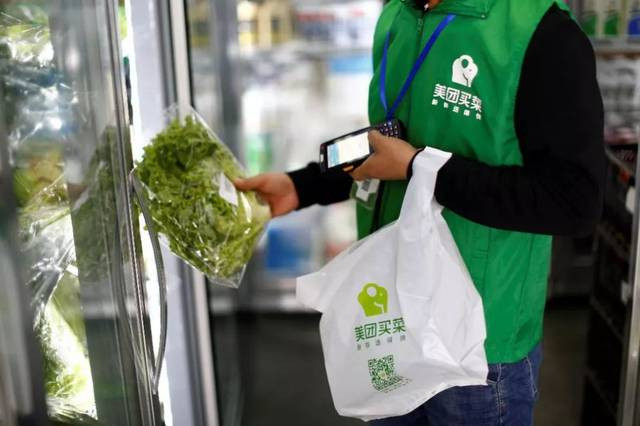Meituan, China's leading app for online-to-offline local life services, said Monday its third-quarter net profit increased nearly five times to 6.32 billion yuan ($961.7 million) from 1.33 billion yuan last year.
Revenue during the quarter was 35.4 billion yuan, a rise of 28.8 % year on year, according to its stock exchange filing.
Covering a variety of life services from on-demand food delivery and ride hailing to travel booking, Meituan, in the past quarter has exceeded the 33.88 billion yuan average of 15 analyst estimates, according to IBES data from Refinitiv.
Is It A Monopoly?
Accounting for more than half of Meituan's total revenue, Meituan's central business - food delivery - raked in 20.69 billion yuan during that period, with an average 34.9 million orders delivered daily.
The food delivery company said users reached 476.5 million as of the third quarter and online vendors topped 6.5 million.
Its business performance, however, has stirred industry criticism and regulator concerns.
GuangDong Catering Service Association issued a letter to Meituan in April saying Meituan had been charging high commission fees on catering companies whose business was already severely hit by the coronavirus pandemic. The association said Meituan had "dominated the market" with 60% to 90% market share, which violates China's antitrust laws.
Earlier in November, China published draft rules aimed at curbing internet companies' monopolistic behavior. The antitrust guideline especially targeted tech giants including Alibaba, Tencent, JD.com and Meituan.
Monopolistic behaviors such as demanding vendors transact exclusively on one platform will be outlawed, according to a statement by the State Administration for Market Regulation.
"Benefiting from the regulators encouraging innovation, Meituan made its success in the past ten years," said the chief executive officer Wang Xing during the Q3 financial report conference call. "From this point-of-view, we hold strong confidence towards China's internet industry in the future."
Wang also added that the company is "creating constructive dialogues" with the regulatory authority to better understand the new rules and will "openly and deeply cooperate with authorities" meanwhile protecting profits of its users, merchants, delivery men and employees.
Online Businesses, Personal Strategy
For the new business segment, including bike-sharing, micro-finance, grocery delivery and B2B catering supply service, Meituan's loss widened from 1.5 billion-yuan last quarter to 2 billion yuan.
Meituan had only achieved overall profitability by 2019, with 1.3 billion yuan in gross profits.
The pandemic has attracted more competitors to join the grocery-deliver field, said analysts, and the newcomers' strategy is burning money to win customers.
In cities like Shanghai, Meituan salesmen drive around the city on scooters with baskets of grocery gifts, urging new clients to download the grocery-delivery app. A Meituan salesman told Business Times that each salesman has to find 20 new clients per day, to avoid a 50 yuan deduction in daily salary.
The company said it increased investment in developing new businesses during the third quarter, in pursuit of "delivering everything to customers' homes." Meituan Youxuan, the premium business division offering grocery group-buying, will seek to expand and penetrate more cities across China.
By the end of 2020, the market scale in the group-buying sector will reach 89 billion yuan, according to consulting firm Kantar.
New Energy, New Markets
Meituan reported during the quarter 5.8 billion yuan as fair value gains, a non-cash investment item majorly from the electric vehicle startup Li Auto. In July, Li Auto floated its ADR on the Nasdaq and raised $1.1 billion dollars.
Before the initial public offering, Li Auto gained $500 million funding from Meituan and $30 million from Wang's individual investment. Meituan and Wang altogether hold 24 percent of Li Auto. Meituan holds a 16 percent stake.
Wang first invested $285 million for a 10% stake of Li Auto in 2019. He noted in a statement early this year that Li Auto, Nio and Xpeng would be the three outstanding Chinese EV makers.
Li Auto offers a hybrid system as its distinguishing advantage. Its Changzhou plant can produce 100,000 vehicles annually. ByteDance shelled out $30 million in its Series C round.
China remains the world's largest auto market. Sales of new energy vehicles in China will top 20% of overall new car sales by 2025, from the current 5%, reaching 50% by 2035, according to the China Society of Automotive Engineers.





